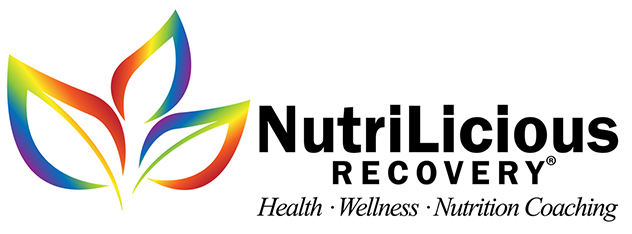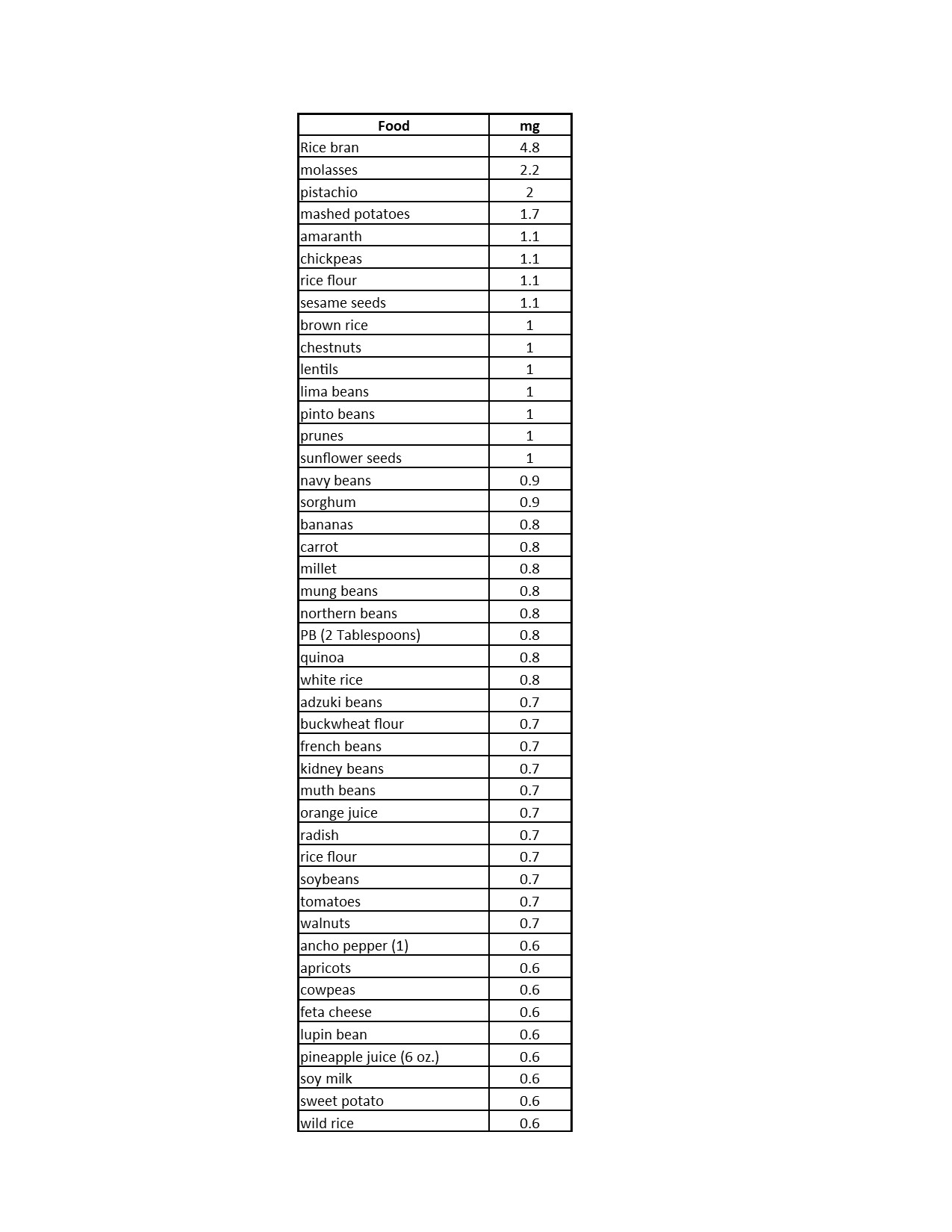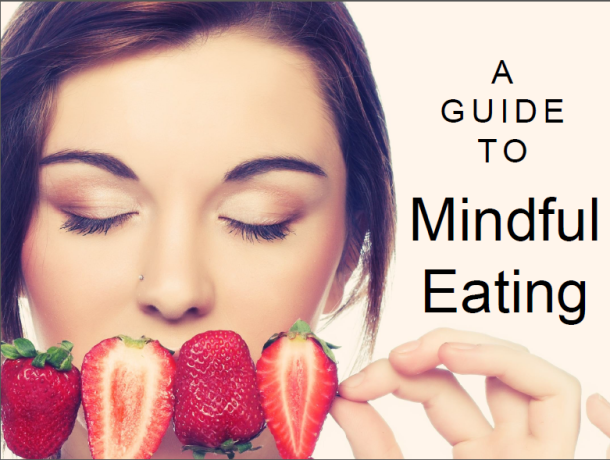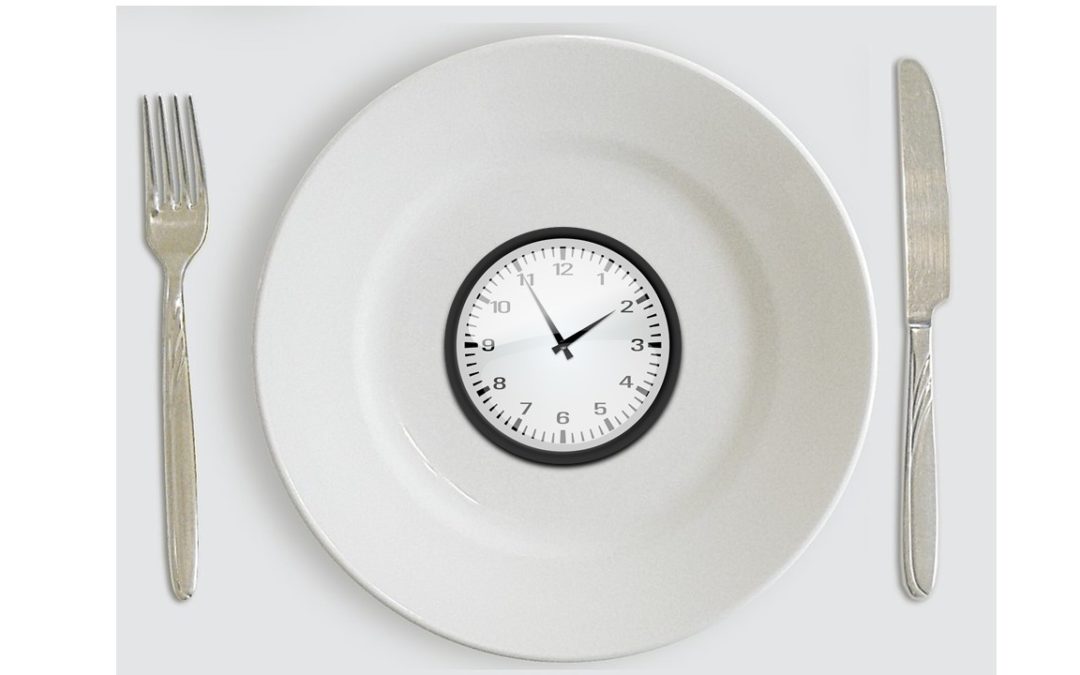
by dnshah | Aug 2, 2018 | Age Defying, Diet and Weight Loss, Health and Wellness Tips, Obesity, Stress Management
Why would people, purposefully, starve themselves and deny their body nourishment? For thousands of years, fasting (no food) has been practiced by the majority of the world (religiously or culturally) for a specified amount of time – perhaps it is eating only when the sun is down for a month, or no food for several days on end (really).
But recently there are scientific studies spotlighting the health benefits of a fast, and it has a following of those that have realized the many benefits. Here are some great facts about fasting if you are new to this concept.
If you occasionally suffer from abdominal pain or GI Issues (gas, bloating, diarrhea, constipation), chances are something is damaging your intestinal lining. What that could be is a whole other discussion you should be having with your health care provider. But let’s address the damage that is there… in your intestinal lining.
I have personally suffered through eating when that lining is not functioning, and it can lead to a whole host of problems. The best solution is to refrain from eating…. But how long? And if we are starving ourselves, what happens to our energy levels? If we starve ourselves, what happens to our microscopic “friends” – our gut bacteria that depend upon us to live?
The truth is that by doing a 24 hour fast (no food – just clear liquids), there are many benefits:
- Avoid pain from trying to eat
- Avoid “leaky gut” syndrome which can occur with a weakened intestinal barrier (and only if you are genetically susceptible)
- Gut stem cells have time to regenerate this lining, and an energy boost to repair it FASTER
- Your metabolism switches to burning fat (vs. carbs)
- Energy levels go up (not down), and possibly brain power could be increased (it is for me)
- Bacterial diversity increases in our microbiome
- Lowers chronic inflammation
But HOW is one able to starve for that long? The truth is when our metabolism switches to burning fat, we aren’t starving anymore. It is just a short time beginning at your next usual meal time to several hours after that you have to manage. After your body’s change in metabolism, you will not be starving. Many people cite that they have no brain fog, no pain from GI-related issues, and a burst of energy.
If you are still skeptical, there is only one way to find out! Remember to talk to your doctor before changing any dietary habits, and that includes fasting. I attempt a 24 hour fast almost every week – on Mondays. When it is scheduled like that, it is easier for planning purposes. Good luck and I look forward to hearing about your Trial Fast!
Resources
https://www.ncbi.nlm.nih.gov/pubmed/29727683; May, 2018; Fasting Activates Fatty Acid Oxidation to Enhance Intestinal Stem Cell Function during Homeostasis and Aging
https://www.ncbi.nlm.nih.gov/pubmed/29874567; June, 2018; Intermittent Fasting Confers Protection in CNS Autoimmunity by Altering the Gut Microbiota
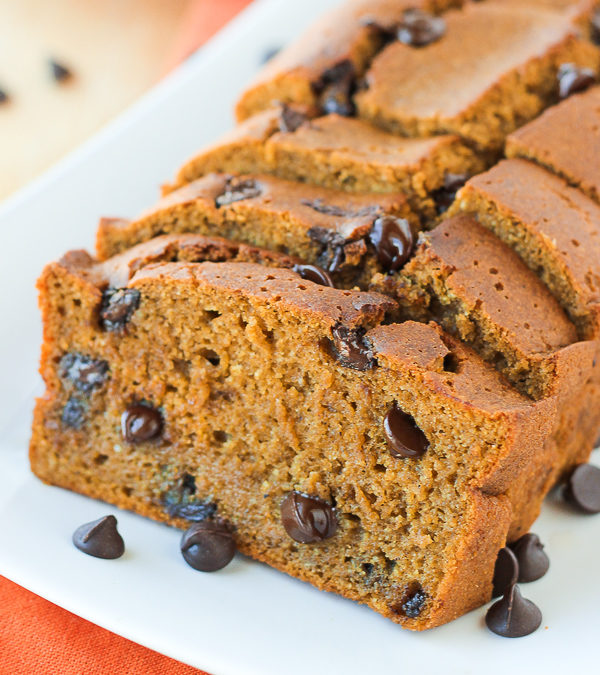
by dnshah | Jul 10, 2018 | Dessert, Recipes
INGREDIENTS
1 cup pumpkin
1 cup gluten-free flour
⅔ cup coconut sugar
½ cup quinoa flour
½ cup chocolate chips
¼ cup almond milk
¼ cup quinoa
3 tablespoons coconut oil
1 egg or egg substitute
1-½ teaspoons baking powder
1 teaspoon vanilla extract
1 teaspoon cinnamon
½ teaspoon ground nutmeg
½ teaspoon ground ginger
½ teaspoon salt
¼ teaspoon baking soda
Cooking spray
METHOD
- Preheat the oven to 350 degrees° F.
- Line an 8 x 4 loaf pan with parchment paper and spray the uncovered sides with cooking spray.
- In a large mixing bowl, beat together pumpkin, almond milk, coconut oil, egg ( or substitute) and vanilla until smooth. Add coconut sugar and beat until well combined.
- Except quinoa and chocolate chips, Stir in remaining ingredients until well mixed.
- Fold in quinoa and chocolate chips and transfer dough to prepared pan.
- Optionally sprinkle with a little extra coconut sugar and cinnamon.
- Bake on center rack for 55 – 65 minutes until an inserted toothpick into the center comes out clean.
- Let cool for 5 minutes in pan then transfer to a wire rack and cool completely.
- Slice and serve.

by dnshah | Jul 10, 2018 | Health and Wellness Tips
Obesity has long been a problem for American adults, but now it is becoming prevalent with our children. To begin to halt this process, we have to dive deep to understand what is happening. Is it nature? Is it nurture? Is it our food supply?
Obesity has both genetic and environmental connections.
Genetics:
- There is a fat-mass and obesity-associated gene located on our chromosome 16. 1
- Ethnicity and race have been shown to have a connection with obesity risk also.
Environment:
- Dietary habits of household
- Friends
- Access to healthier diet modifications
The real question is, “If an individual carrying obesity-related genes made healthy dietary changes, would they succeed or are they always destined to be obese?”
A study published in British Medical Journal investigated this very question. With over 14,000 participants (8828 women and 5218 men) eating one of 3 healthy eating diet choices – either the Alternate Healthy Eating Diet, The DASH (Dietary Approach to Stop Hypertension) Diet, or the Mediterranean Diet. This study recorded BMI and body weights every 4 years for 20 years. The findings were very hopeful for those of us trying to avoid obesity.
The study concluded that by strictly following a healthy eating diet, we can prevent long term weight gain. Also, those with genetic risk for obesity that improve their diet quality can have a higher chance of success at losing weight. Looks like nature outweighs nurture in this case (pun intended)!
Our genetic vulnerabilities, no matter what they are, do not control our ultimate destiny. We have choices to make that will drive our reality. For more information on a healthy eating diet like the DASH diet, make an appointment with me, and let’s talk about you experiencing success with your health.

by dnshah | Jul 10, 2018 | Health and Wellness Tips, Stress Management
The recommended amount of sleep most people should strive to minimally get is 7 hours per 24-hour period. However one in three people still don’t get that. Seven hours is necessary to relieve inflammation and repair the body from the day’s workload. It is also the down time needed to relieve chronic stress and anxiety for those required to always be “on” during the day. With today’s busy world, it becomes increasingly important to get that down time. For those of us that can’t get the magic 7 at night, well… we would be advised to take some POWER naps when we can. My husband is always promoting a 10-minute power nap to go from “dragging” to “full steam ahead”. So do what is necessary to get that down time – naps included!
Some of us are plagued with restless sleep due to recurring nightmares. For me the obvious message here is to understand the dreams and reflect upon them as messages given by the universe, especially if they are recurring. The problem is many of us do NOT remember our dreams upon waking up. Is there a way to remember these dreams… nutritionally? You bet. A recent study from June 2018 informs about the potency of vitamin B6 for dream recall. According to the study, a mega-dose of vitamin B6 (under the range of toxicity) allowed individuals to have better dream recall without any negative effects of sleep quality. The recommended daily intake of vitamin B6 is about 1.3mg (adults under 50YO), with slightly greater amounts for seniors.
Why was this study important to know? It seems individuals that can remember their dreams are able to reflect upon them and reduce the reoccurrences of unpleasant dreams… which improves overall sleep quality. Some nutritional sources of vitamin B6 are illustrated below.
When we don’t get our minimum recommended amount of sleep, we may get more tired, & cranky. Make note that continued sleep deprivation may also affect your mental & physical health (weight gain, exhaustion, weakened immunity, increased risk of early death, diminished short-term memory, difficulty learning, hallucinations, beginning of bipolar disorder, micro-sleeping, increased risk of diabetes mellitus & heart disease, increased risk of respiratory infections). So it is well worth the effort to better understand the causes of your sleep deprivation.
The best way to get back on track with sleep involves limiting daytime naps, refraining from excessive caffeine past noon, and a regular schedule of sleep time and wake time. It’s important when going to sleep that you refrain from using electronic devices and eating/drinking.
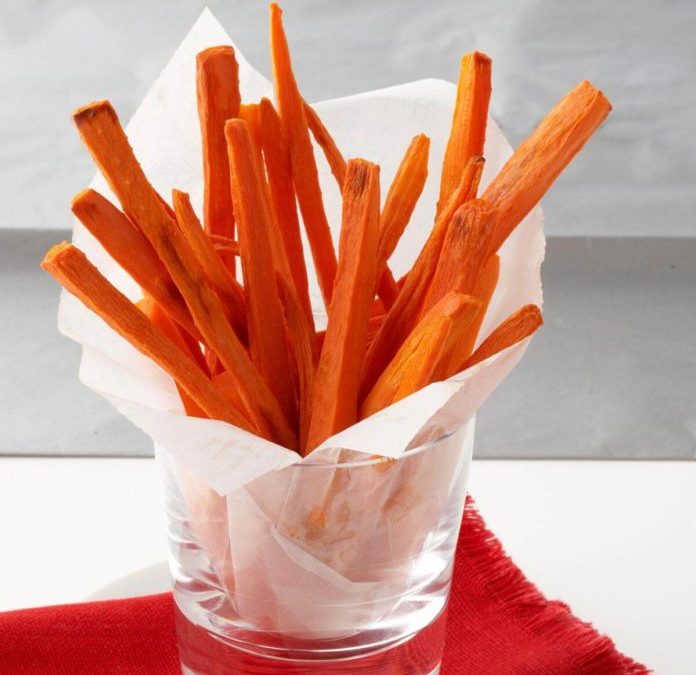
by dnshah | Jul 8, 2018 | Recipes, Side Dish
Source: The Anti-HPV Diet: How I Fought HPV Naturally by Following this Carefully Researched Lifestyle Plan By Sara Ashley
INGREDIENTS
2 lbs carrots
1 tablespoon olive oil
salt and pepper to taste
METHOD
- Preheat oven to 425 degrees.
- Peel and slice carrots into french fry shaped pieces.
- Toss carrots with olive oil, salt and pepper.
- Arrange carrots in a single layer on baking sheet. Bake for 15 minutes then flip each fry.
- Continue to bake until fully cooked and slightly crispy, about an additional 15 minutes

